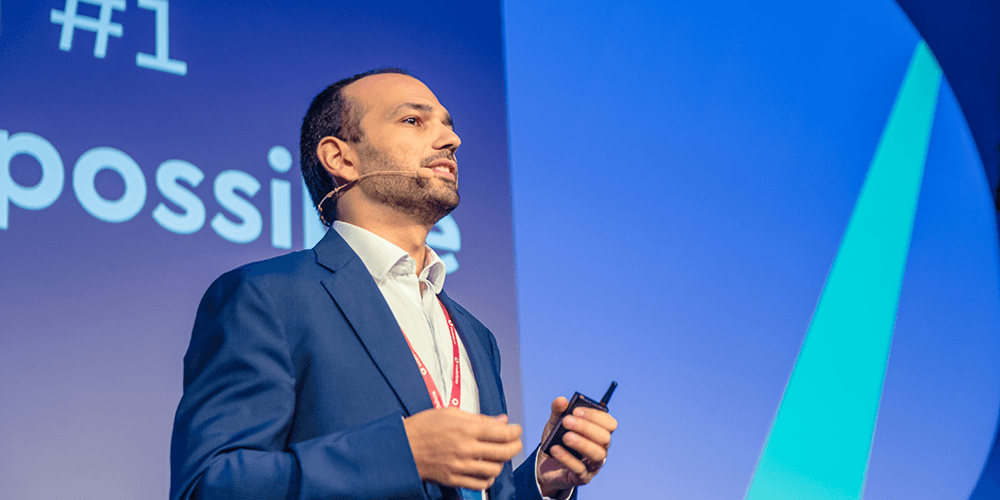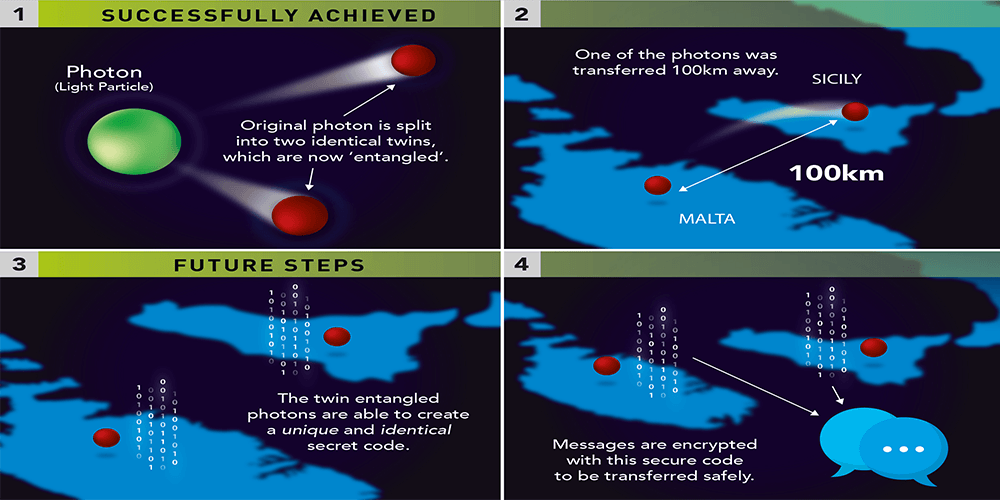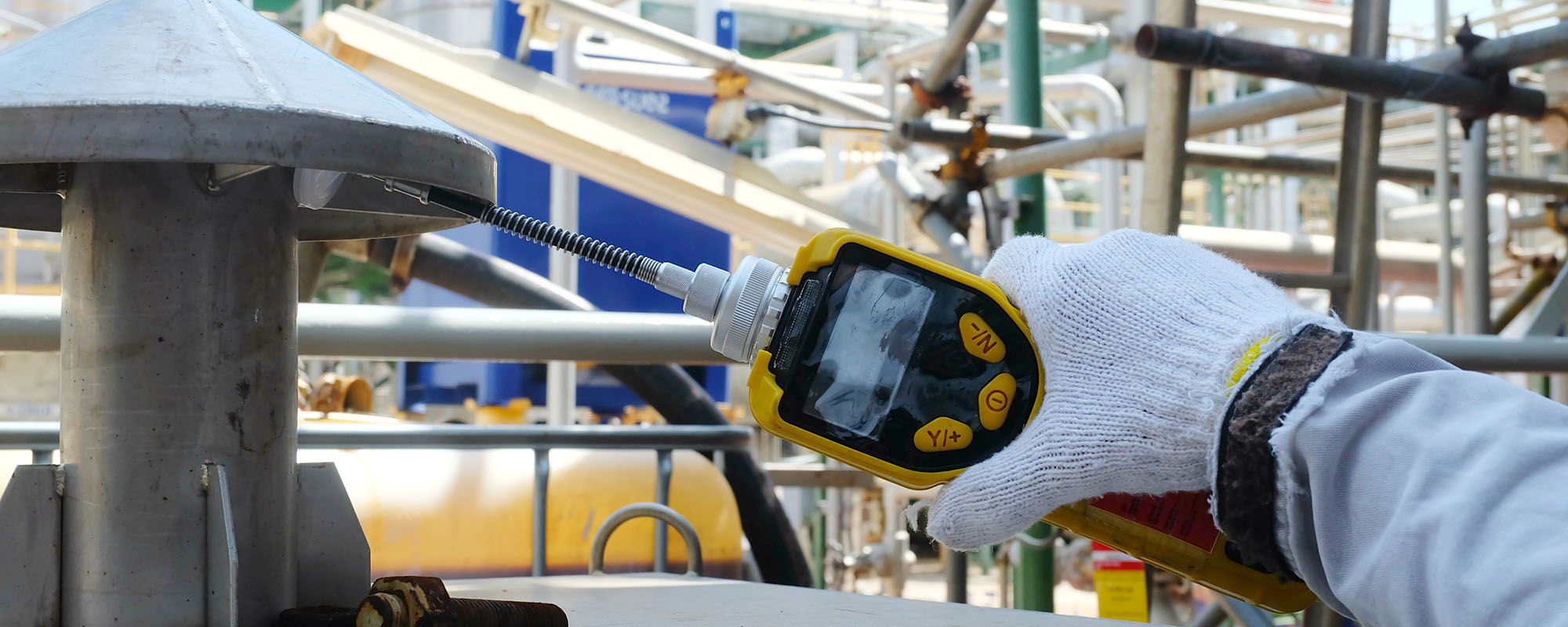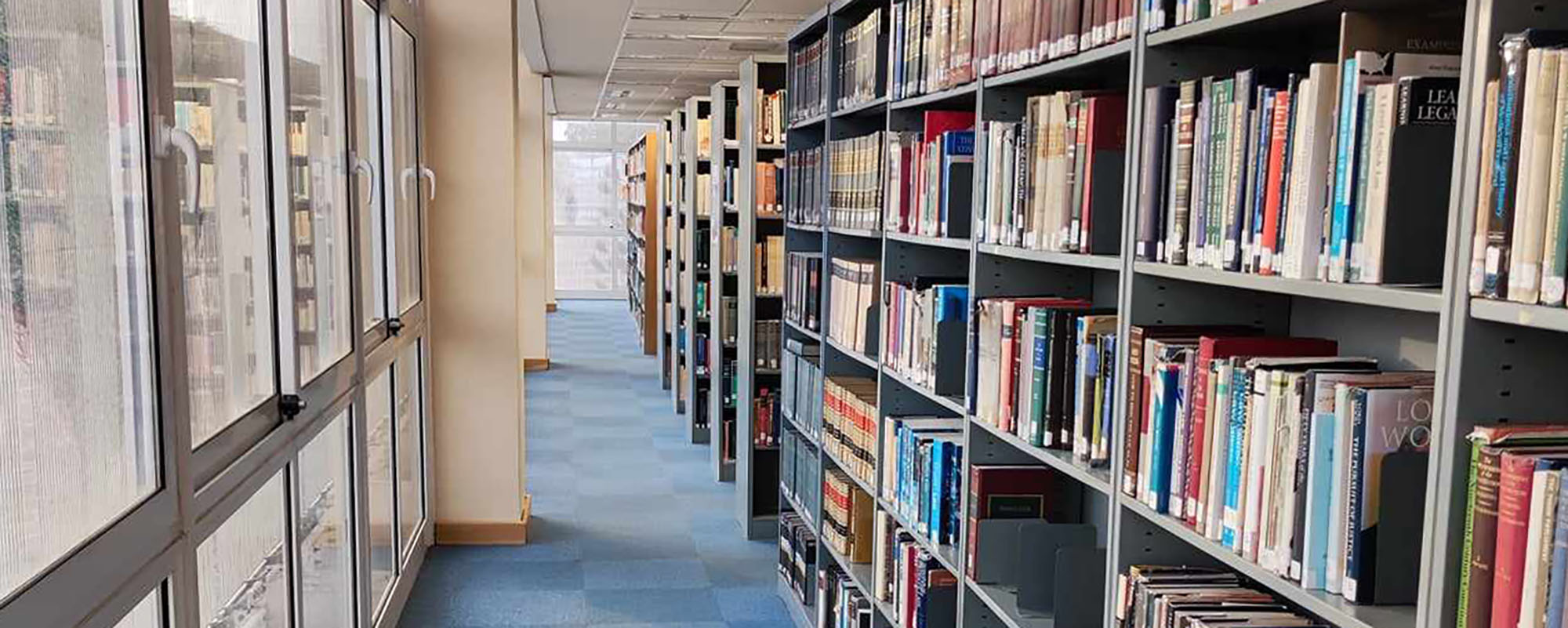A team of scientists from around the world has recently shown that quantum mechanics can be used to create a super-secure telecommunications link between Malta and Sicily. Laura Bonnici meets with the project’s leader in Malta, Prof. André Xuereb, to discover how Malta could be pivotal in the development of a brand new communications technology.
As über-scientific as quantum mechanics may sound — with Erwin Schrödinger claiming his cat is simultaneously alive and dead, or Albert Einstein wrestling with quantum probability — it has many down-to-earth applications. Its proponents are convinced it can help us design better drugs and completely new materials.
Quantum mechanics looks at the microscopic building blocks of our world, describing and predicting their behaviour. Technologies powered by quantum mechanics make our lifestyle what it is, such as in the computer chips that put the ‘smart’ in your smartphone. New quantum mechanics-inspired innovations are taking place around the world, and Malta has now joined the fray.
An international team of scientists from Malta, Austria, Italy, and a host of other countries recently demonstrated a new kind of super-secure telecommunications link that builds upon the principles of quantum mechanics. Using specialised devices, the team was able to transmit entanglement, a quantum property shared between particles of light, through a 96-kilometre-long submarine optical fibre cable that links Malta to Sicily through the Melita Ltd telecommunications network.

ʻWe used entanglement, a property of quantum mechanics that Einstein called “spooky action at a distance.” Thereby two particles are intimately connected and any action taken on one instantly affects the other, no matter how far they are apart,ʼ explains Xuereb, quantum physicist and Malta’s project leader.
While classical mechanics — stuff like Newton’s laws of motion — defines the ‘common sense’ activity of everyday objects and talks about certainties, quantum mechanics deals with uncertainty. In the quantum realm, objects cannot have a definite position and velocity, making it impossible to simultaneously know where an object is and how fast it is moving. Yet this uncertainty doesn’t hinder the theory’s applicability.
ʻWe entangled two particles of light, or photons, keeping one in Malta and sending the other to Sicily,ʼ Xuereb continues. He told TVM, Malta’s national TV station, earlier this year, that the photons, once entangled, simultaneously produce identical measurements in two different places, without communicating with each other. These measurements can then be used to create the same secret number in two places without it having been sent from one place to another, which means it cannot be intercepted by criminals or governments. ʻThis could be used to share information safely, with unbreakable data security,ʼ Xuereb elaborates.
In a world where protection of data is paramount, the team’s findings could pave the way for quantum-secured communications to be used routinely both in Malta and around the globe. ʻThis kind of technology will soon be protecting our most important data,ʼ continues Xuereb, who has already seen some interest from Malta-based IT companies. ʻAt present, every single means we have for sending information from A to B can be broken into, through hacking or through vulnerabilities in the infrastructure itself. But with quantum-secured communications, the actual mechanism to encrypt and decrypt is guaranteed to be secure by the laws of the universe.ʼ
‘With quantum-secured communications, the actual mechanism to encrypt and decrypt is guaranteed to be secure by the laws of the universe.’
The journey towards this ground-breaking project started in 2015 for Xuereb. He witnessed first-hand the rise of quantum technologies in conferences and laboratories all over Europe. He then considered if a quantum-based experiment might be possible locally, using the underwater cable between Malta and Sicily. Following a meeting in Vienna with one of the ‘godfathers’ of quantum optics, Austrian physicist Prof. Anton Zeilinger, and a discussion with the management team at Melita Ltd, Xuereb managed to finalise the plan for the ambitious project.
The team has broken the record for the longest distance over which polarisation entanglement of two photons has been shared through a telecommunications network outside of a laboratory environment. ʻA team of scientists from Austria came over to Malta to check that the experiment is possible with the equipment available — and the results were better than we had dared hope for,ʼ Xuereb explains.
ʻWhat followed was almost a year of trying to make it work, collaborating with the Italian team, and putting together everything from a made-to-measure plasterboard shed on the Malta end of the connection, to a van fully equipped to record the delicate measurements on the Sicilian end. It was very frustrating to get everything to work, but after many long days and lots of patience, we managed!ʼ

The experiment marks the first time that polarisation entanglement was distributed using an international submarine optical fibre cable. By showing that communication secured by the laws of quantum mechanics, known as quantum key distribution (QKD), is possible in this real-world scenario, it is now feasible to implement it worldwide.
Indeed, the possible implementation of this new technology is now the team’s focus. Their eyes are set upon a different kind of entanglement — one which furthers academic knowledge while also exploring the commercial potential of QKD. ʻWorking with such a valuable and knowledgeable partner from the private industry as Melita Ltd taught us a lot about practical work outside of the lab,ʼ highlights Xuereb. ʻFollowing the publication of the findings in the prestigious journal ‘Proceedings of the National Academy of Sciences of the USA’, the next steps will include the further development of this ground-breaking technology, before exploring implementation in the market, first in Europe, then beyond.ʼ
This project was made possible through funding and in-kind support from Melita Ltd, the University of Malta Research, Innovation and Development Trust (RIDT), the European Research Council, the Swedish Research Council, the Linnaeus Center in Advanced Optics and Photonics, the European Space Agency, the Austrian Science Fund, the Austrian Research Promotion Agency, and the Austrian Academy of Sciences.
, the European Space Agency, the Austrian Science Fund, the Austrian Research Promotion Agency, and the Austrian Academy of Sciences.





Comments are closed for this article!